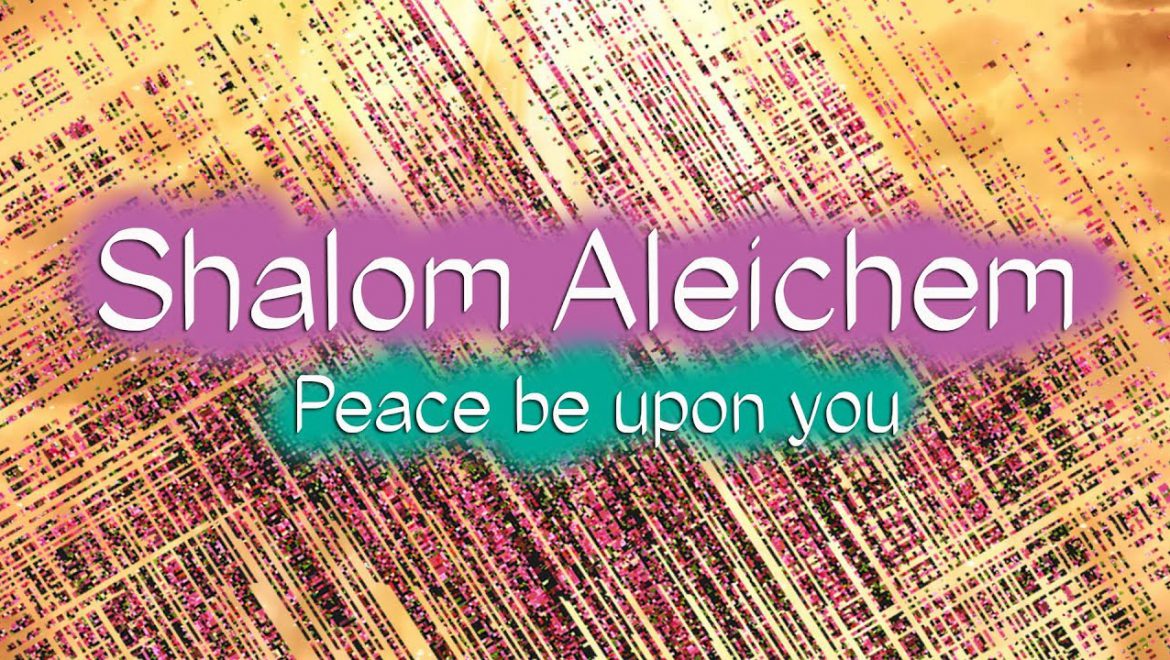
This thorough excerpt from “Friday Night and Beyond” by Lori Palatnik provides meaningful explanations as to why Shalom Aleichem is recited at the beginning of the Shabbat evening meal. Complete with the Hebrew, English and transliterated texts, an audio recording of the popular, upbeat version composed by Rabbi Shmuel Brazil in 1985, and personal reflections, this is a great resource for beginners. Lori Palatnik is a writer, Jewish educator and the Founding Director of The Jewish Women’s Renaissance Project, an international initiative that brings thousands of women to Israel for inspirational trips.
Welcoming the angels before the start of the Friday night meal
The table is set with the finest china, crystal, and silver. (When it comes to Shabbat, nothing is saved for a special occasion, for this is the special occasion!) Those who went to shul have now returned, and the room is filled with the warm sounds of Good Shabbos greetings. Everyone is invited to the table, as we begin the meal with song.
Shalom Aleichem! — the traditional greeting used when two Jews meet, and the name of the song that begins the Shabbat meal Friday night. Shalom Aleichem — May peace be upon you.
Shalom … peace … from the Hebrew word shalem, which means complete.
On the most basic level, by singing this song, we are asking God to bless our home with peace; that there should be no conflict between friends or family, especially on Shabbat.
The Talmud says that when a person comes homes from shul on Friday night, he is accompanied by two angels — a good angel and a bad angel. If the table is beautifully set and there is a peaceful atmosphere in the home, then the good angel says, So may it be next week, and the bad angel is forced to say, Amen — so may it be! But if the house is a mess (both physically and emotionally), then the bad angel says, So may it be next week, and the good angel is forced to say, Amen!
Yet on another level, we are asking for completeness: that we should truly feel that we lack nothing — that the world is complete on Shabbat. We sit back in awe at this revelation. Our weekday work is done.
The only work now is the work of Shabbat, which is something much deeper and often much harder to attain — that is working on oneself, on real completeness, the achievement of a more ideal sense of self.
On Shabbat, one is no longer split. During the week there is the working you, the family you, the day-to-day you. But on Shabbat you are focused, with everything in harmony: family, learning, joy of life…
Lyrics
Each verse is customarily sung three times:

Audio
Audio PlayerReflections
“I remember a lot of things from my first Shabbat experiences, but the thing that stands out in my mind the most is the singing. Back home, the only time I remember sitting around singing as a family was when a birthday cake was being brought in. So when I sat at a Shabbat table and heard the singing of Shalom Aleichem with everyone, young and old, joining in, it brought tears to my eyes. I thought, I want this, too, one day at my own Shabbat table.”
* * *
“I really feel that music is the key to Shabbat. It opens up the heavens. And you don’t even have to know the words — just hum and sway along and you can feel the power of a Shabbat song.”

